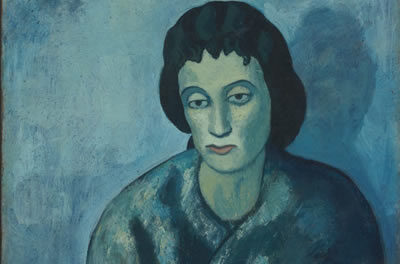American Reverie: Piano Music of Horatio Parker, Peter Kairoff, piano. Six Lyrics, Op. 25, Four Sketches, Op. 19, [3] Morceaux caractéristiques, Op. 9, & 1 from [3] Morceaux caractéristiques, Op. 49. Albany Records Troy 315 (1998) http://www.albanyrecords.com/.
Pianist Peter Kairoff, currently at Wake Forest University, has established himself as a specialist in the music of American composers of the “New England School,” active during the late 19th and early 20th centuries. This CD, his second for Albany Records, contains most of Horatio Parker’s (1863-1919) slim output for solo piano. Trained in Munich by Joseph Rheinberger (1839-1901), Parker spent his career at Yale, and is best known as the teacher of Charles Ives. Parker must have been a man of considerable patience to endure that assignment. By contrast with Ives’s work, Parker’s music has faded into obscurity with the exception of the oratorio Hora Novissima (1893) and some of the solo songs and choral works.
Music for solo piano did not figure prominently in Parker’s output, although he made extensive use of the instrument to accompany vocal works. There are four published opus numbers: Op. 9, Op. 19, Op. 25, and Op. 49, along with two unidentified compositions that appeared in a multi volume anthology, Famous Composers and Their Works, published in Boston between 1891 and 1895.
Kairoff performs the Six Lyrics, Op. 25 (1891), the Four Sketches, Op. 19 (1890), three of the five morceaux, Op. 9 (1886), and one of the Trois morceaux caractéristiques, Op. 49 (1899). All of this music reveals a solid compositional technique in terms of structure and harmony, idiomatic piano writing, and a gift for charming melodic lines. The influence of Grieg, Mendelssohn and Schumann’s character pieces for piano is felt throughout. Parker wrote these pieces for the salon, and even the most sophisticated music here, the Op. 19 Sketches, is intended for consumption by the legions of genteel young ladies playing piano throughout New York and New England in the 1890s and 1900s.
Kairoff plays this music with clarity, full tone and a technical and musical directness that lightens its straight-forward rhythms and makes the most of its sentimental melodies. The Scherzino from Op 19, and the Gavotte from Op. 9 are particularly lovely. By not imposing a false importance on these slight pieces, he succeeds admirably in projecting a forgotten slice of American musical history. The recording is as clean and clear as the performer’s technique.
My only criticism concerns the short playing time of the disc (48:21). Why not record all of Parker’s piano music rather than the selection given? The remaining few pieces, six by my count — if the two published in the anthology mentioned above aren’t duplicates, would fit easily onto a standard 70 minute CD. Kairoff’s other discs for Albany include a recording with violinist Sarah Johnson of music by Amy Beach (1867-1944) and Arthur Foote (1853-1937) (Troy 150), and a disc of piano music by George Whitefield Chadwick (1854-1931) (Albany Troy 745). On a more local note, Kairoff and violinist Kevin Lawrence played a concert on February 20, 2005, for the 2004-05 Sights and Sounds Series offered by the Raleigh Chamber Music Guild. Reviews of more recent NC recitals involving this artist can be found by searching cvnc.org’s reviews.











